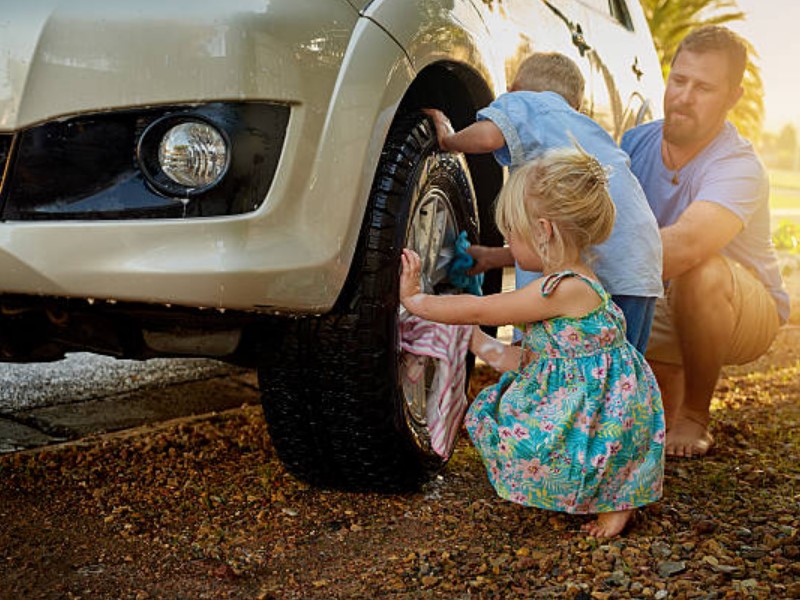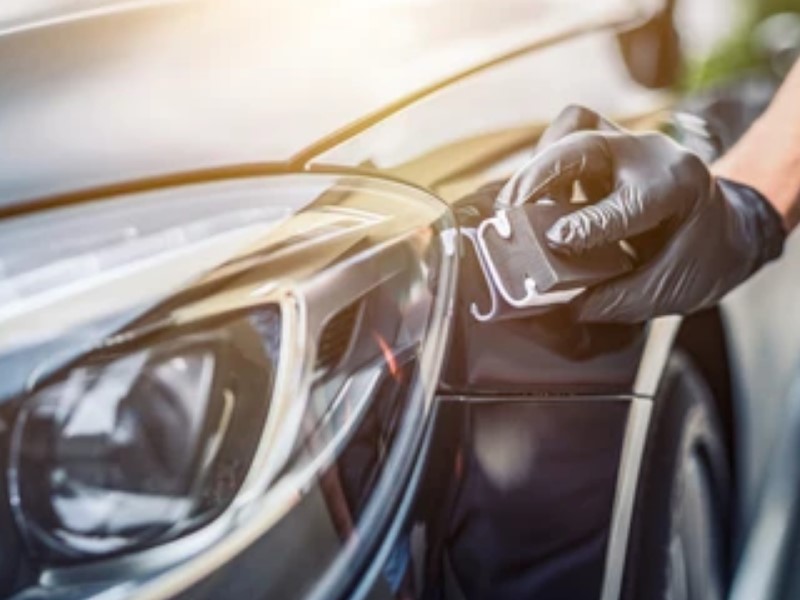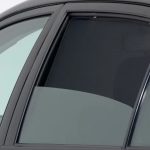Protected car exteriors even in summer
Have you just bought a new car and are you worried about the excruciating heat, the direct sun, and the ever-increasing temperatures? Here are 6 tips for you for perfect car body care in the summer. Obviously, not everyone immediately thinks of the bodywork in the heat, we tend to think more about the interior but, as you well know, the exterior is the part we notice the most.
The most common thing is to pay attention to the mechanics and tires of our vehicles. Unfortunately, drivers rarely think about checking their bodywork and this could be dangerous when traveling.
First of all, flawless bodywork is aesthetically beautiful to look at, and this also helps to maintain its market value. Secondly, any damage to the sheet metal, however small, can lead to severe damage in the medium to long term and body parts are not readily available as auto parts.
Table of Contents
Protect the car body in the summer
During the warmer months, the exterior of our car is exposed to sun, saltpeter, insects, bird droppings, and other harmful contaminants. It is highly recommended to take care of the bodywork and doing it is not difficult at all. Just follow a few basic tips.
Avoid parking your car in the sun
Although vehicle paints are becoming more and more resistant, they can still deteriorate and lose their original brilliance and intensity. One of the factors that accelerates this deterioration is prolonged exposure to sunlight. Whenever possible, park your car indoors or in shaded areas. In case you don’t have a place to protect it, cover it with a car cover to protect the bodywork.

Extreme sand care
In summer it is almost inevitable that the sand of the beach ends up reaching the car body. Removing it is not difficult, but you have to be very careful because the risk of scratching the paint is high.
Frequent washing
Saltpeter is a very corrosive element; a serious threat to vehicle paint if we frequently drive along the coast. Washing the car weekly (preferably manually, and wiping it with a cloth and in the shade) will erase its remains and avoid future problems.

Do not let insects and bird droppings on the car paint for a long time
Many mosquitoes and small insects will stick to your car body in the summer, and quite a few birds will smear it with their droppings. By adding tree resin, industrial dust particles and tar fragments to the whole, the possibility of corrosion eventually affecting the paint and metal becomes a very high risk. So, don’t let these items stay on your car for long, and try to keep it as clean as possible.
Nano-ceramic
Today, thanks to nano-ceramic technology, we can find new products on the market that protect the bodywork from scratches, bird droppings, sunlight, and some chemical elements. These repel water easily and help maintain the gloss of the paint.

Quickly repair any damage
Scratches, bumps, and dents that break the vehicle’s paint leave the body exposed to rust and corrosion. A slight defect in the sheet metal that is not treated in time can become a serious problem in the medium term. Also, the cost of the repair will not be as cheap as it should have been. It is essential to act quickly against any damage, no matter how small it may be.
What if, despite all the precautions, the bodywork is damaged?
Obviously, advice and best practices help reduce the risks, but not eliminate them all.
Any of us could have an accident that can damage some parts of our vehicle, and also remember that unexpected hail can cause dents on the surface of the car. When this happens, your trusted coachbuilder will apply the most appropriate treatment to the case.
If the car paint has not been damaged, the panel will quickly regain its original appearance, without affecting the quality of the manufacturer. And if that damage is in a relatively small area, so-called smart repairs will help you fix the problem without disassembling the affected car panels.
We hope you find our advice useful and that you have enough time to take care of your car.









